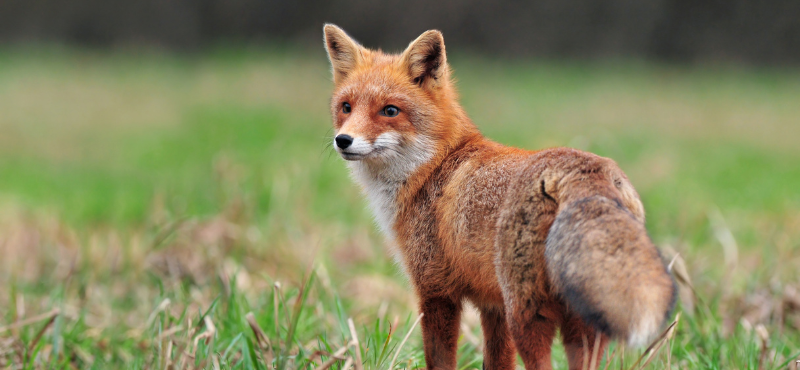Two cases of rabies confirmed in Durham County foxes

Durham, NC - The Durham County Department of Public Health (DCoDPH) urges caution as a second fox in Durham County has been confirmed positive for rabies in the last week. The first was confirmed in a deceased fox found near the Carolina Arbors Community on July 31. The second was confirmed in a fox who attacked an individual in North Durham near Ben Franklin Blvd. on August 6.
“Foxes are common to see throughout North Carolina, and although they are typically not dangerous to humans, they are still wild animals and should not be approached,” said Durham County Medical and Laboratory Director Dr. Jeffrey Jenks. “They will not usually attack humans unless they are rabid, so if you are attacked by one or see one acting aggressively, it’s important to call and report it right away.”
Signs of rabies in foxes include aggression, stumbling, disorientation, and foaming at the mouth. Anyone who sees a fox exhibiting these signs or is attacked by a fox or other wild animal should call Durham County Animal Control at 919-560-0900. This number should only be used for potential rabies reporting if an attack has occurred or if signs of rabies are observed.
Rabies spreads primarily through bites and scratches from infected animals. Anyone who has been attacked by a wild animal should wash any wounds immediately with soap and water for 15 minutes to help flush out any virus and seek attention from their local urgent care or emergency room right away. Rabies is preventable with vaccination soon after exposure, but it cannot be cured once symptoms appear. Learn more about rabies prevention on the CDC’s website here.
Pet owners should also ensure their pets are up to date on rabies vaccinations. The Durham County Sheriff’s Office (DCSO) Animal Services Division offers low-cost vaccination clinics on Tuesdays, Wednesdays, and Thursdays at their office on Glenn Rd. Vaccinations are by appointment only and cost $10 per pet. For more information, please visit the Animal Services Division page of the DCSO website, or call 919-560-0630 for questions and scheduling.
To prevent exposure to rabies, residents should take the following steps:
- Do not feed foxes, other wild animals, or feral cats.
- Secure garbage in containers with tight-fitting lids.
- Feed pets indoors, or remove food promptly after outdoor feeding.
- Remove other potential food sources, such as bird feeders or fallen fruit near trees.
- Close off crawl spaces under sheds, porches, decks, and homes.
- Secure pets or keep them indoors.
To learn more about rabies, visit the North Carolina Wildlife Resources Commission website here, the CDC website here, or the DCoDPH website here.


